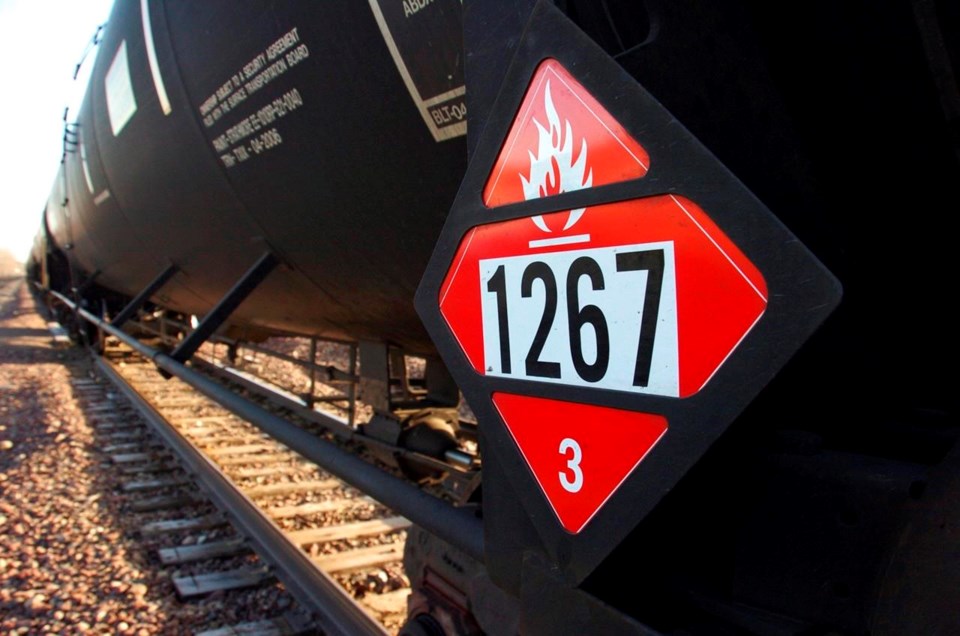CALGARY — Canadian crude-by-rail shipments nearly doubled in volume in the last six months of 2023, as oil output from Alberta surged to all-time highs and the Trans Mountain pipeline expansion remained under construction.
Data from the Canada Energy Regulator released Monday shows oil-by-rail export volumes jumped from 78,747 barrels per day in May of last year to a high of 167,006 in November.
Though they then declined six per cent to 157,142 in December, that was still 25 per cent higher than the country's crude-by-rail shipments in December 2022.
For the full year, Canadian crude-by-rail exports averaged 119,077 barrels per day, a seven-year low and down 17 per cent from 2022.
But the sharp uptick in the last half of the year shows the impact of surging oil output in Alberta that has filled Canada's oil export pipelines close to capacity.
Last year, Alberta’s crude oil production hit an all-time record, totalling just under 1.4 billion barrels last year or about 3.73 million barrels per day.
The increase came as oilsands companies have been ramping up to prepare for the opening of the Trans Mountain pipeline expansion, which will add an additional 590,000 barrels per day of export capacity for this country's energy industry.
When the Trans Mountain project does come online and begins to fill with oil, the recent increase in crude-by-rail shipments should reverse, said BMO Capital Markets analyst Ben Pham in a recent report.Â
"For the first time in over a decade, the (Western Canadian Sedimentary Basin) will have excess crude takeaway capacity," Pham wrote, noting BMO expects Western Canadian crude oil supply to increase from 5 million barrels per day in 2023 to 5.3 million in 2025 and 5.6 million in 2030.
In addition to allowing Canadian producers to grow production, the addition of the Trans Mountain expansion is expected to improve the price they receive for their product. The Western Canada Select differential, a discount Canadian oil companies typically have to absorb in part due to a lack of export capacity, is expected to narrow when the new pipeline starts up.
But Trans Mountain Corp., the company building the pipeline expansion, recently pushed the pipeline's in-service date back from the first quarter to the second quarter of this year due to unexpected construction difficulties in B.C.Â
Eight Capital analyst Phil Skolnick said in a note to clients Monday that the project must be completed soon or Canadian producers will take a hit to their bottom line.
"Estimated growth in Western Canada will require (Trans Mountain) start-up by Q3/24 in order to prevent differentials blowing out, in our view, as we see exportable volumes exceeding current pipeline export capacity at that time," Skolnick wrote.
He added that even with the addition of the Trans Mountain expansion, Canada's oil output is growing so quickly that exportable supply could exceed pipeline capacity as early as 2026.
"This puts the country's producers in a vicarious situation as the (Trans Mountain) project took over a decade to complete, raising doubt of another major export pipeline ever being constructed," he said.
This report by The Canadian Press was first published Feb. 26, 2024.
Amanda Stephenson, The Canadian Press




